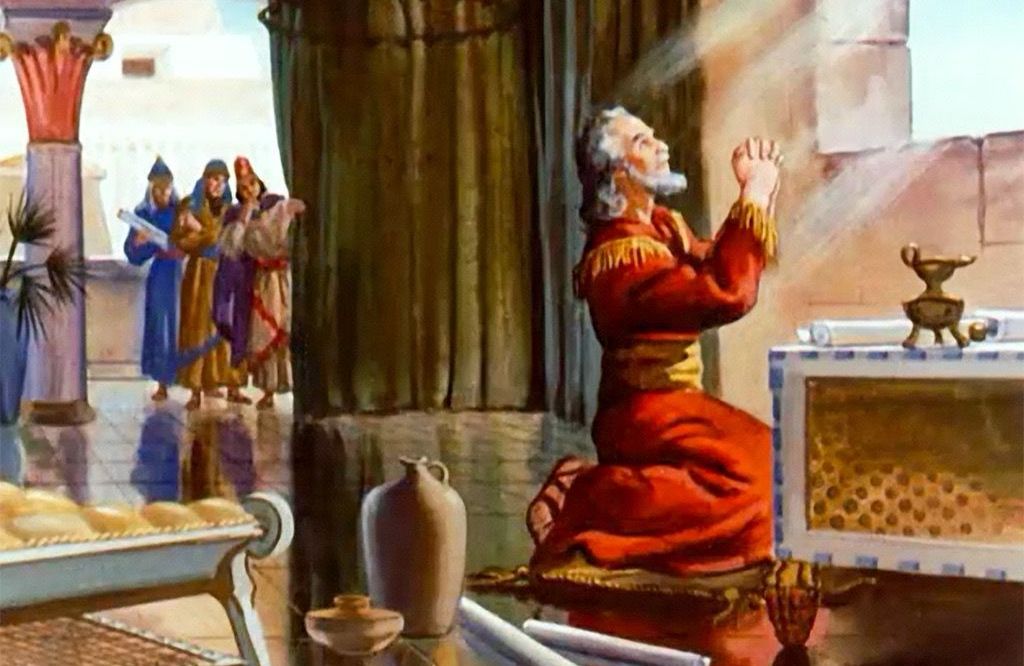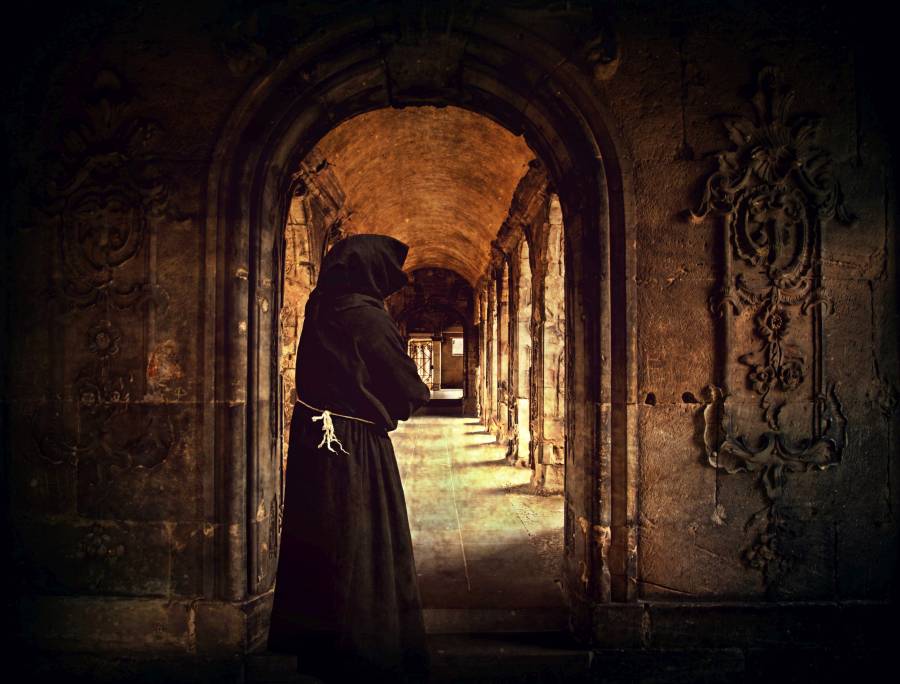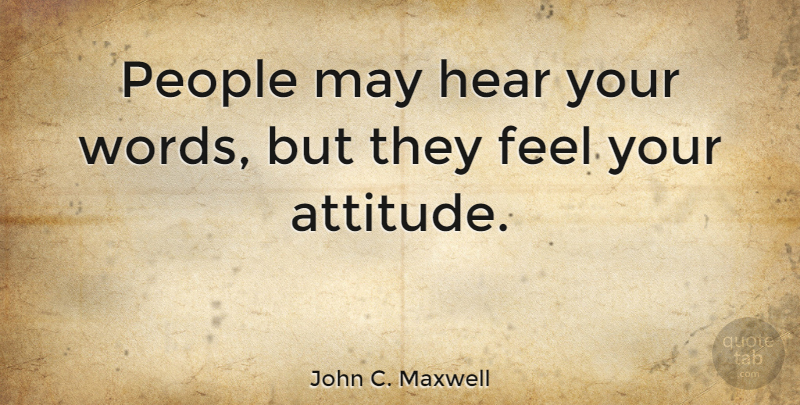
“I make a decree that in all the dominion of my kingdom men are to fear and tremble before the God of Daniel; for he is the living God and enduring forever, and his kingdom is on which will not be destroyed, and his dominion will be forever.” -King Darius
Many parents today are scared to death. They are terrified about the future of their children and want to protect their sons and daughters from anything that could hurt them physically, spiritually, or otherwise. Some parents even believe such fear is virtuous and because they care.
As a Christian school leader, a theme I address on a regular basis with staff, students, and parents is that we seek “to graduate Daniels into Babylon,” influencers into a pagan culture increasingly hostile to biblical principles and faith. Recall the story of Daniel and his friends, Shadrach, Meshach and Abednego, from the early chapters of the Book of Daniel. The Babylonians removed these devout Jewish boys from their homeland and brought them into captivity in Babylon. They were identified as some of the best and brightest of the Jews and selected to join the aristocracy of their new country. They received the finest Babylonian education and learned history, science, math, philosophy and religion, all in conflict with their own Jewish upbringing and Mosaic Law. Yet, Daniel continued to pray regularly, which got him into a lot of trouble with the authorities (Daniel 6). The other three friends refused to bow to the golden idol set up by King Nebuchadnezzar and they got into a lot of trouble as well (Daniel 3). God did not only save them from these situations, but blessed them. The kings (different ones on each occasion) were so impressed with these men that the practice of their Jewish religion became legal. Laws were changed because of them! Their influence continues today. Biblical historians recognize that during the Babylonian exile Jewish synagogues were established where Jews met to pray, read Scripture, hear a sermon, and worship God. This meeting format was adopted by Christians for church services after the resurrection of Jesus and the Day of Pentecost. What an impact these men had!

Fast forward to the Dark and Middle Ages Ages, which saw the rise of monasticism in the church. Down through the centuries, some Christians believed it best to protect themselves from a corrupt world by detaching from society so they could live as faithfully and righteously as possible. They built monasteries and convents in rural areas away from population centers. Depending upon their monastic order, monks and nuns committed to various rules such as poverty, celibacy, silence, and heavy prescriptions of prayer and Bible reading.
In theory, the purpose of seeking holiness seems commendable, and there were some fantastic monks, like St. Francis of Assisi, who served the sick and the poor, and is a model for all Christians. But how does intentional isolation balance with Jesus’ teaching that his followers are to be the light of the world and the salt of the earth (Matthew 5:13-16)? How does this reconcile with the influence of Daniel and his friends in Babylon who affected major change from positions within the government of Babylon (and then Persia)?
We don’t protect our kids by isolating them, but by preparing them. Let’s raise influencers who will impact the spheres of education, business, finance, medicine, law, politics, and Christian ministry. Don’t snuff out the light in our children, but let them shine bright in a world desperate for the hope that can only come through Jesus Christ.
In a practical sense, what can we do? Here are a few suggestions:
- Set limits for your kids. Give them boundaries for how much time they can spend online and always know who they are with.
- Give them your time. Kids need our approval and undivided attention more than we think.
- Forgive them when they have done wrong. No one is perfect and when they cross the line of acceptable behavior, let them know, but then forgive easily.
- Model a Godly lifestyle. The kids are watching us closely and will value what we value (eventually!).
- Don’t be afraid. Let’s show our kids the courage we want them to develop in their own lives.

Dr. Bill Maier, in his article, “How to Protect our Kids from Negative Influences,” says this, “As we seek to teach, train and protect our children, we may be tempted to isolate them in a Christian cocoon. But Jesus told us to ‘go into all the world and preach the good news’ (Mark 16:15), and our kids can’t fulfill this command if we isolate them from the world.” He is absolutely correct.
Let’s raise up Daniels, rather than monks. Monks separate themselves from the world, while Daniels change it.






Forgiving Those Who Hurt Others
What can we teach our kids and students about forgiveness in this atmosphere of conflict that seems worse than ever? Anyone who has been married for more than an hour, or is the parent of a teenager, understands there will be disagreements and hurt feelings in life because we all want our way. What can be even more destructive is the pull to get even with the person or group who hurt us. In his poem, “All I Really Need to Know I Learned in Kindergarten,” Robert Fulghum notes one lesson to teach children is to, “Say you’re sorry when you have hurt somebody.” True, but he only cites half the process when pain has resulted between two parties. We need to apologize, but the victim must also agree to forgive. That is not human nature.
Recall the story of Joseph in the final chapters of the Book of Genesis. When Jacob died, the older brothers of Joseph panicked that he would now take revenge on them, since their father was gone. Years earlier, they had sold him as a slave to Midianite traders when he was only a teenager. Joseph was then purchased by the Egyptians like a piece of merchandise. He suffered through many other miserable days too. For example, he had been thrown into prison when falsely accused of a crime by the wife of a politically powerful man who worked for the Pharaoh himself.
A few years later, and through miraculous circumstances, Joseph was elevated to second in command in all of Egypt, which brought him wealth, power and the ability to save his family and others from the ravages of a famine. By the end of the story, Joseph had reunited with his father and brothers, who then settled in Egypt too.
But once their father was dead, the brothers asked each other, “What if Joseph bears a grudge against us and pays us back in full for all the wrong which we did to him?” (Genesis 50:15) They even approached Joseph with a likely fabricated story that their father’s deathbed wish was that Joseph would not seek retribution for the wrongs against him. Obviously, Jacob did not want Joseph to kill his brothers, but they were desperately attempting to manipulate Joseph so he would not harm them and their families. This wasn’t necessary. Joseph responded to their fear with forgiveness. He understood his role in a bigger story when he declared, “As for you, you meant evil against me, but God meant it for good in order to bring about this present result, to preserve many people alive” (Genesis 50:20). Joseph had the authority to execute his sheep-herding brothers for whatever reason he decided and nobody would have questioned it. He chose forgiveness.
Joseph had been enslaved and falsely imprisoned, yet he not only forgave the individuals directly responsible, but promised to take care of their families too. This act of love led to the birth of a nation. It can seem simple for us in the 21stcentury to read this biblical account and applaud Joseph for his act of forgiveness, and to teach our students at school and children at home this virtue. However, it is extremely difficult to forgive others who have hurt us deeply. As C.S. Lewis wrote in Mere Christianity, “Everyone thinks forgiveness is a lovely idea until they have something to forgive.” Quite right.
In the New Testament, Jesus taught about forgiveness too, and he presented the rather sobering truth that if we do not forgive those who have sinned against us, then our Father in heaven will not forgive us either (Matthew 6:14-15). The world teaches that those who have been wronged deserve retributive “justice.” True reconciliation begins when someone says “I am sorry,” and makes amends. But the conflict will not truly subside until the one who was victimized agrees to forgive as well. Why does Jesus expect us to respond this way? Because every one of us is a sinner, who hurt and offended God’s divine justice, yet Jesus died for those sins, even though we did not deserve it and before we asked for it (Romans 5:8).
Guiding our students in the challenging process of forgiveness will bring them peace with God and peace with others too. And even more important is to instill in them Joseph’s understanding that God will bring good in the midst of circumstances that others meant for evil. Hopefully, we as parents, teachers and leaders can model this truth about forgiveness in our own lives.